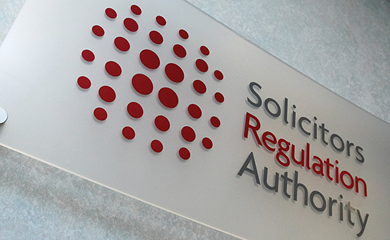The Solicitors Regulation Authority (SRA) is set to strengthen its enforcement of anti-money laundering (AML) compliance, amid persistent concerns that many law firms are still falling short of their obligations, according to its chief executive.
Recent penalties for AML non-compliance suggest that, even as recently as last November, some firms lacked proper risk assessments and policies. These breaches occurred despite the SRA having already launched a concerted effort to target AML failures, alongside repeated warnings about the need for compliance.
The regulator has set a target of conducting 700 inspections in the 2024/25 year, which began in November. Impressively, the SRA carried out 297 inspections between November and February—exceeding its target for the period by 128%.
This surge in enforcement has been attributed to more efficient processes, the effective use of desk-based reviews alongside in-person visits, and the retention and upskilling of AML specialists. These enhancements have allowed for quicker, more impactful inspections.
Although some solicitors may view the increasing scrutiny and penalties with apprehension, recent SRA board papers highlight the mounting external pressure on the regulator to take decisive action.
Earlier this month, the Office for Professional Body Anti-Money Laundering Supervision (OPBAS) completed a comprehensive review of the SRA, interviewing staff across all departments. The OPBAS report, when published, will assess the regulator’s AML supervisory effectiveness.
A key OPBAS focus is improving the quality of Suspicious Activity Reports (SARs), which help identify potential money laundering or terrorist financing. The watchdog reviewed a sample of SARs in February but has not yet shared its findings. Meanwhile, the SRA is also awaiting outcomes from two HM Treasury consultations: one on the future of AML supervision and another on improving AML regulations.
Speaking at a media briefing this week, SRA chief executive Paul Philip expressed concern over the continued presence of basic deficiencies in AML arrangements within firms. “Fines have been continually increasing. Non-compliance may not be intentional—some firms might lack capacity or may simply not have focused on it,” he said.
“But the reality is, not having a risk assessment significantly raises the risk of money laundering. We will continue to increase the consequences for those who fail to comply.”
Newly released board papers reveal that a broad survey of the legal profession will commence in late June. The data collection exercise will gather insights on AML, sanctions, and SARs from across the sector. Running for six weeks, the initiative aims to identify firms requiring proactive inspection or review.
Source: John Hyde, The Law Society Gazette









